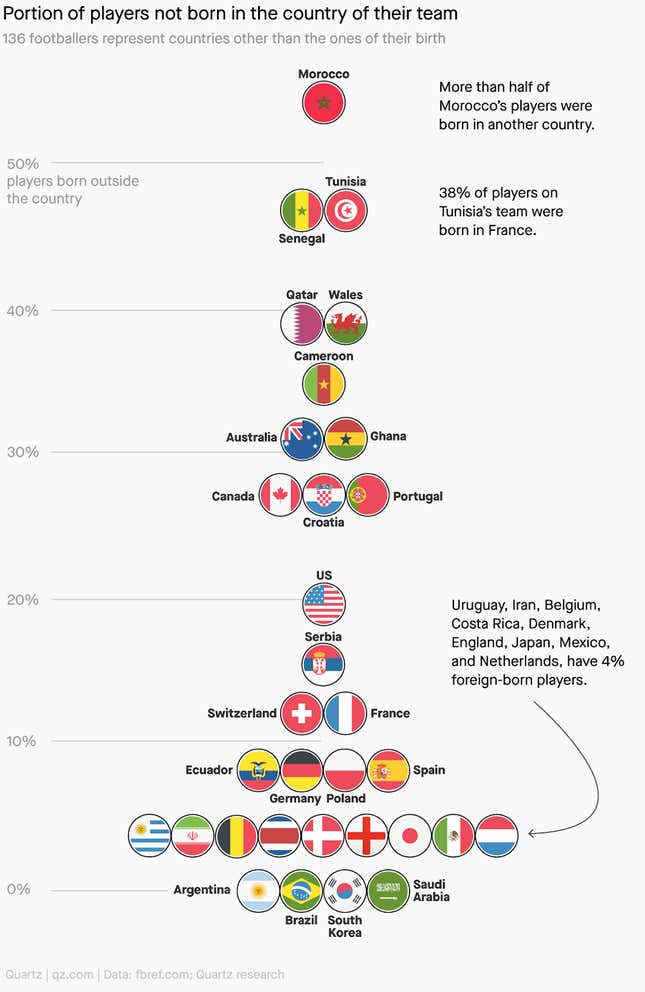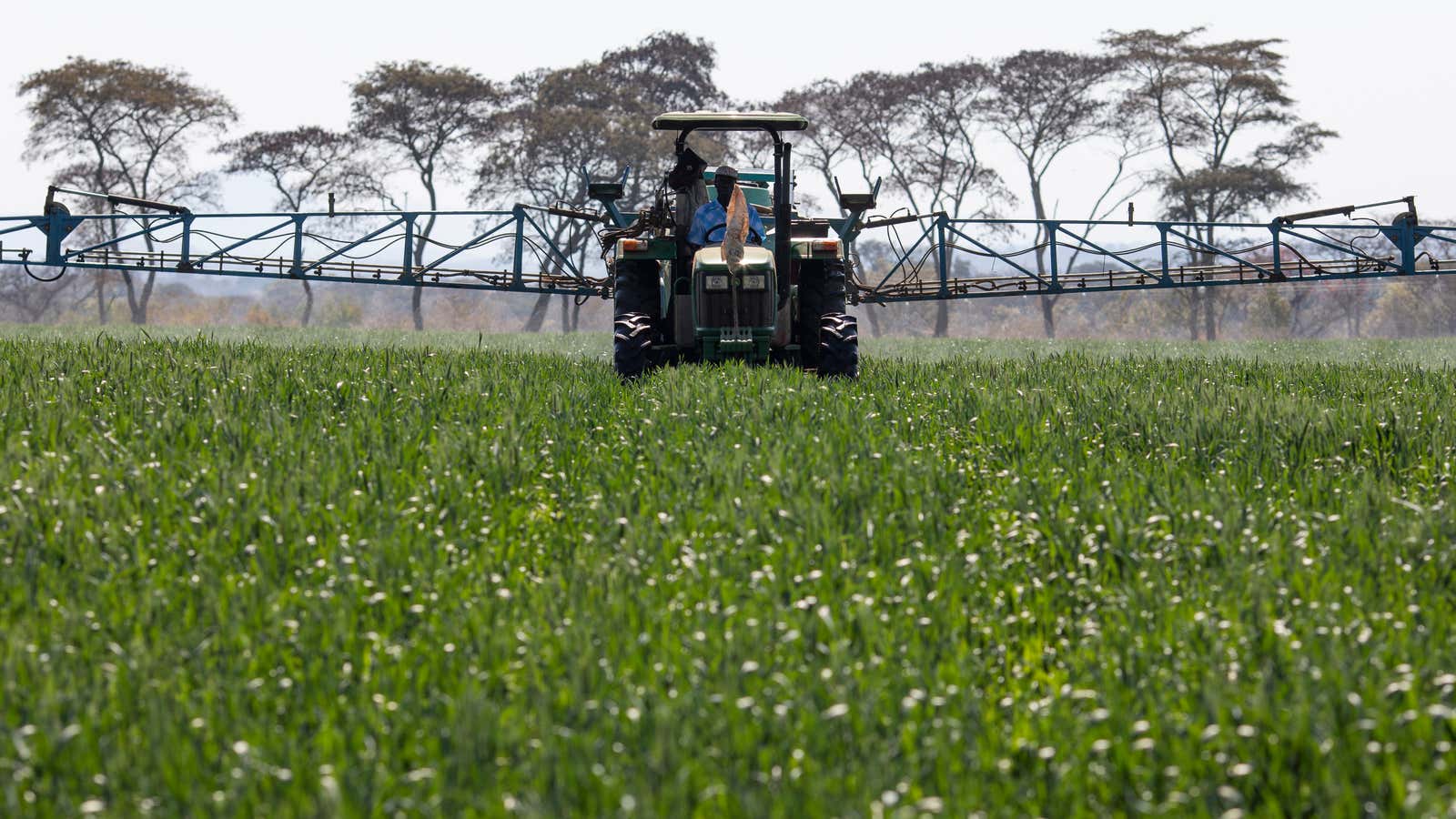Dear Quartz Africa readers,
At the Africa Financial Industry Summit in Lome, Togo, this week, it became apparent that investors’ appetite for financing African agricultural projects is not a problem. The challenge is finding an African country whose supply chains, policies, and regulations attract investment.
“We learnt very painful lessons in Ivory Coast,” JD Diabira, CEO of Westbridge, a Canadian trading house that expanded to finance agriculture in Africa five years ago told me. “But we managed to set up a soya bean enterprise in Togo two years ago. In the first year, we made $800,000. Six months later we did $9 million. We are looking at $23 million this year.”
As demand for quality organic soya is high in Canada, Westbridge began working with Togolese farmers to produce the crop. The company provides them with free cash for seeds, fertilizers, machinery, pesticides, and technical assistance. When it’s time to harvest, farmers sell the produce exclusively to Westbridge, which pays double the local price. “Instead of giving away a ton for $700, we buy at $1,500,” Diabira says. The company then sells it to Canadian costumers.
Overall, agricultural enterprises in sub-Saharan Africa face a $74.5 billion funding gap, with the continent largely to blame for its food security woes. Fake seeds, for instance, cost Kenyan farmers millions of shillings after they failed to germinate, badly damaging both the reputation of the company that sold the seeds, and the country itself. In Uganda, an estimated 30% of the seeds on the market are fake.
The problem of counterfeit agricultural products is widespread and doesn’t just affect seeds, but also fertilizer and pesticides, lowering investors’ confidence. Governments who have been unable to provide a sound regulatory environment have become part of the problem.
The continent boasts 60% of the world’s uncultivated arable land, yet it remains a perennial importer of food that is unable to adequately feed its population. As I type this, one person has died of hunger in east Africa, and this happens every 48 seconds.
—Faustine Ngila, east Africa correspondent
Stories this week
Nigerian crypto companies begin layoffs. Two Nigerian companies that enable crypto trading and payments announced job cuts in November to adjust to the pressures of the crypto winter on revenue and growth projections, Alexander Onukwue reports.
The company that pioneered electric mobility in Kenya closed for good. NopeaRide is shutting down after a founding round fell through, adding its name to a list of Nairobi startups that have folded this year, Faustine Ngila writes.
Ruto’s Hustler Fund is breaching data laws. Kenya’s president William Ruto says his public financing project is receiving 600 loan requests per second, but Faustine Ngila explains why this is comes with a data privacy cost for Kenyans.
Charted: All the players who crossed borders to play football at the Qatar World Cup
At the 2022 FIFA World Cup in Qatar, Swiss striker Breel Embolo gently held his hands up after scoring the winning goal against Cameroon. Stopping himself from celebrating was a sign of respect: He had just scored his first-ever World Cup goal against the country where he was born, and where his father still lives.
But Embolo is just one of 136 other soccer players in Qatar representing countries other than the ones in which they were born. And most of these players play for Africa’s five teams at the World Cup. Morocco is the most extreme case: more than half of its 26 players were born in other countries.
Alexander Onukwue and Amanada Shendruk scoured data sources to present a picture of how immigration helped form many of the teams at this year’s World Cup in Qatar. Look out for France’s unique position as a feeder country.

Dealmaker
Ejara, a Cameroonian fintech startup for savings in crypto, raised $8 million in a Series A round led by Anthemis, a London-based firm, and Dragonfly Capital, a fund that invests in crypto projects. The company claims transaction volume grew 15% month-on-month in the past year.
Badili, a Kenyan startup that sells second-hand smartphones sourced from phone dealers, manufacturers, and individuals, raised $2.1 million in seed money from Venture Catalysts, V&R Africa, Grenfell Holdings, and SOSV. Badili is planning to launch in Uganda and Tanzania before expanding to West Africa.
Quartz gems
Bellwether: That sound you hear
Analysts usually track a number of bellwethers across sectors in the economy, from primary divisions like mining and agriculture, to tertiary categories like retail and services. How well do you know your closely watched indicators?
🔑 Copper. Often considered a bellwether for the real economy, used in everything from computer chips to grid infrastructure.
🛒 Walmart. Considered a bellwether of the overall US retail sector’s health (in particular, consumer spending), a yardstick for inflationary pressures, and a source of insight into food, electronics, and clothing shopping habits.
📱 Apple. Bellwether for the tech sector, consumer sentiment, as well as the global economy, having the most heavily weighted stock in the S&P 500.
🏦 JPMorgan Chase. Bellwether for US financial markets and the global investment banking sector, largest bank in the US and the fifth largest bank in the world by total assets ($3.77 trillion in the third quarter of this year), and run by Jamie Dimon, who we’re obsessed with.
Learn more in our recent Weekly Obsession email on Bellwether.
Other things we liked
South Africa’s Cyril Ramaphosa is facing calls to resign. For the AP, Mogomotsi Magome reports that the president who came in vowing to fight corruption rejected accusations of wrongdoing over a large sum of cash found stuffed in the couches of his game farm.
Nigerian stowaways survived 11 days on a ship’s rudder. New York Post’s Yaron Steinbuch describes how three men sat on the rudder of an oil tanker and endured a 2,000-mile voyage from Nigeria to the Canary Islands.
Gender-based violence shook Senegal’s parliament. The BBC’s Grace Kuria writes that a parliamentary session was suspended after MP Massata Samb hit his female colleague Amy Ndiaye Gniby. The latter responded by throwing back a chair.
DRC’s military accused M23 rebels of killing 50 civilians... Quoted in Reuters, the Tutsi-led militia denied responsibility for the massacre in the eastern town of Kishishe.
...while South Sudan sent 750 troops to DRC. For the New Times, Moise Bahati explains that President Salva Kiir’s soldiers are deployed as part of the East African regional force to bring stability to eastern DRC.
ICYMI
Apply for startup awards. Applications are now open for the Global Startup Awards Africa, which aims to give African startups global visibility and investment opportunities via the Global Innovation Initiative Group (GIIG) Africa Fund. (Jan. 31, 2023)
Apply for Queen Elizabeth’s Commonwealth scholarship. The program is offering a fully-funded two-year scholarship for masters students. (Jan. 10, 2023)
🎵 This brief was produced while listening to “Damages” by Tems (Nigeria).
This week’s brief took you to 🇳🇬, 🇰🇪, 🇨🇲, 🇿🇦, 🇨🇩, 🇸🇸 and 🇸🇳
Our best wishes for a productive and ideas-filled week ahead. Please send any news, comments, suggestions, ideas, second-hand smartphones, and cash-stuffed couches to [email protected]. You can follow us on Twitter at @qzafrica for updates throughout the day.
If you received this email from a friend or colleague, you can sign up here to receive the Quartz Africa Weekly Brief in your inbox every week. You can also follow Quartz Africa on Facebook.
